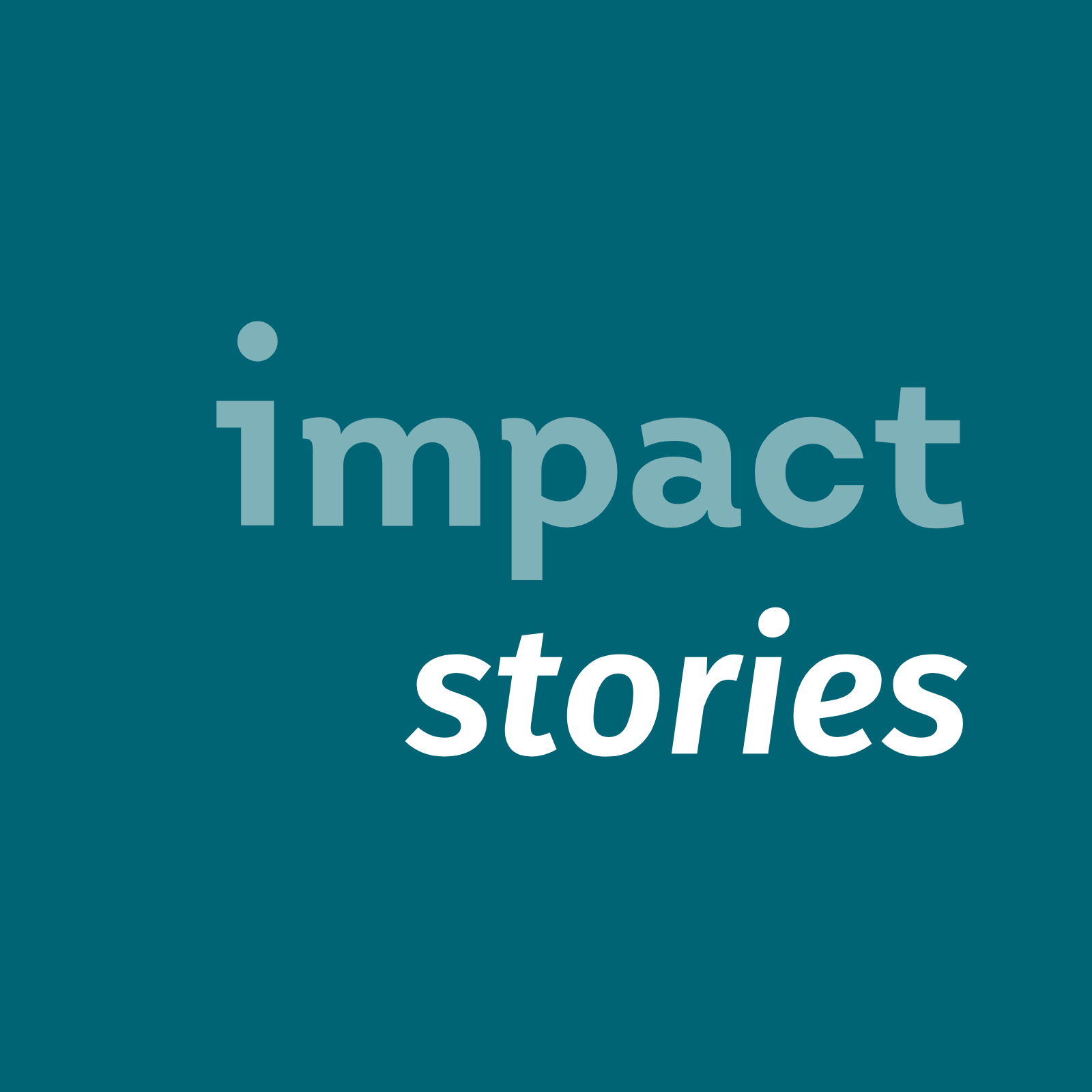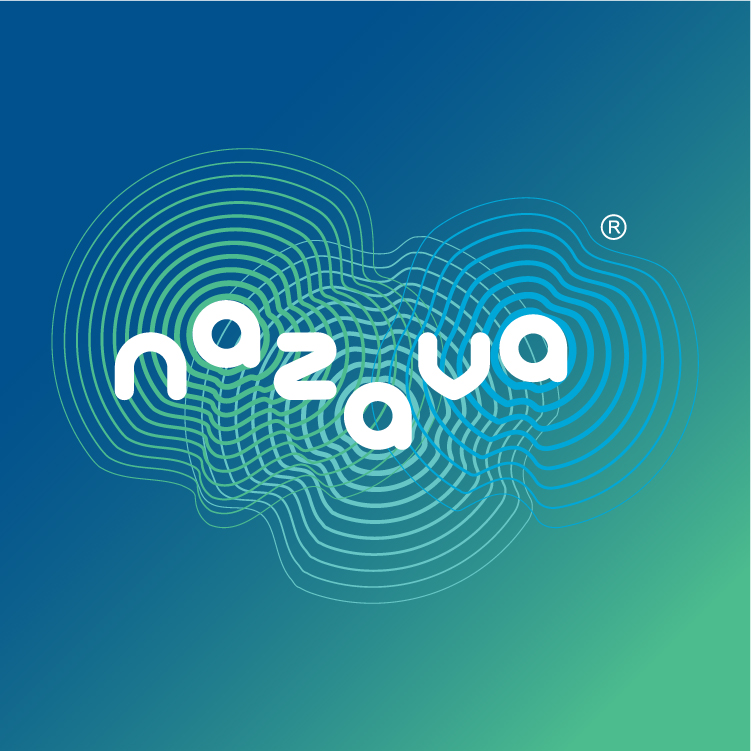

Nazava Water Filters
Nazava Water Filters empowers households to purify their own water. This improves their health, saves them time and money, and helps protect the environment. "By 2030 we want to be the global leader for household water filters serving the base of the pyramid," says co-founder Lieselotte Heederik. Learn more!
To start, can you briefly introduce yourself?
My name is Lieselotte Heederik, but most people call me Lisa. In 2009, I co-founded Nazava Water Filters in Indonesia with Guido van Hofwegen. Today, I am the director of our companies in Indonesia and Kenya. Globally we have a team of 50 people spread over Indonesia, Kenya and Ethiopia, of which 35% are women.

What is Nazava all about?
Our mission is to provide safe and affordable drinking water to everyone, everywhere. We manufacture and distribute affordable and safe household water filters, mainly in Indonesia and Kenya. The filters empower lower-income households to purify their water and make it safe to drink. This saves them money, improves their health, and reduces CO2 emissions.
What motivated you to start the company?
I moved to Indonesia after the tsunami in 2007. We only had a well in our garden, which had a very high iron content. We could boil that water, but the iron would not be removed. So, we had to buy water in big gallons, but every week we read in the newspapers that this water was contaminated with E. coli bacteria. When we looked around for a simple water filter, we did not find any. So, we started to import filters from Brazil for our own use. When our friends and neighbours also asked for one, it started to dawn on us that no one in Indonesia had safe drinking water from their tap.
What customer segments do you target, and why?
We target households that earn less than seven dollars a day, mostly in rural areas – not only in Indonesia, but also in Kenya and Ethiopia. In addition, we work with distributors in India, Burkina Faso, Mali, and Mozambique, and run an online store. In Indonesia, we also work with schools to provide drinking water to students.
We target lower-income households because they carry the highest burden of the lack of safe drinking water. Relatively, they have to invest more money in boiling the water, and women spend a lot of time looking for fuel wood.

What is the special value you create for consumers?
In Indonesia, no one has safe drinking water from the tap. There are water utilities, but only nine per cent of the population use that water. Also, even that water is not safe to drink. The rest of the population, about 270 million people, depend on well or river water – sources they cannot control. This is similar in other countries.
We empower households to purify their water at the point of use. This saves them money – 12 million USD globally since we founded the company – and improves their health.
How do you ensure quality and make sure your filters meet people’s needs?
Nazava is one of the few companies targeting the base of the pyramid that is certified by the WHO for bacteria removal. We also publish all our test reports so people know what we can purify and what we cannot.
In the design of our products, we cooperated with universities. They involved our future customers in a Human Centered Design approach. This was crucial to ensure quality. It is important that the product you sell is not just functional, but also attractive and aspirational, something that lower-income households really want to invest in. I have seen many products flop because they had not been tested with the communities and did not look attractive.
Can you tell us more about your impact on women?
We primarily focus on women because, globally, they face the burden of providing safe drinking water to their families. They still face the double or the triple burden of caring for the household and generating money. Women spend a lot of time looking for fuel wood to boil water. With water filters, they can use this time for productive activities or relaxing.
How do you impact the environment?
Without water filters, people boil their water using liquefied petroleum gas (LPG) or wood. This causes CO2 emissions. We have been certified for emission reductions and sell carbon credits to companies in the Global North. In total, our products have saved about 177 thousand tons of CO2.
In addition, we reduce the use of single-use plastic because people buy less water bottles.
How many people have you reached so far?
We have sold more than 200,000 units, thereby impacting 534,000 people in 32 different countries. In April 2022, we sold 10,000 units to UNICEF for Ukraine. We have a continued use rate of 93 per cent year on year, which shows that our impact is sustainable.
How do you measure the impact you create?
We go through a through auditing and certification process by third-party institutes to sell carbon credits. In that process, they also measure our social impact.
In addition, we look at unit sales and do customer surveys. For in-depth research, we work with universities – something I also recommend to other entrepreneurs. Students help us conduct interviews with customers to gather in-depth qualitative data. For them, this is an interesting experience.

How does Nazava generate revenue?
We are a for-profit social enterprise because we believe that households should make an investment to ensure the sustainable use of our product.
Most of our revenue comes from the sale of our products. We sell B2C through our online store and B2B2C by working with microfinance institutions and other organisations that target lower-income households. The revenue generated by the sale of carbon credits are used to reach the most remote communities.
How do you reach your low-income customers and ensure affordability?
In Kenya and Indonesia, we work with microfinance institutes. Instead of credits, customers get a water filter and pay in installments. This is how we ensure affordability. We also work with last-mile distributors because those channels have already been well developed.
In India, Mali, and Burkina Faso we work with distributors that purchase our products and re-sell them. We also have global partners like UNICEF who purchase directly through us.
What makes your business model financially viable?
We have a healthy gross profit margin and are able to generate profits and break even.
Can you tell me the annual revenue of your business?
Globally, we make around 500,000 dollars a year in revenue. Most of it comes from lower-income households.
Do you receive any funding or technical support from outside the company?
We are alumni of the Miller Centre for Social Entrepreneurship in San Francisco. Their support has been crucial, and I am still in touch with my mentors. In Indonesia we have also received support from Angels of Impact, Instellar and the Impact HUB. For our Kenyan enterprise, we participated in a green business accelerator from the Kenya Climate Innovation Center (KCIC) and the WASH Accelerator Kenya (WA-KE UP) organized by CEWAS for water-related enterprises in Kenya. Also, we receive technical support from Danone staff through their Danone Communities programme. Now, we are participating in the PrivABoo programme with GIZ.

What are your plans for the next few years?
By 2030 we want to be the global leader for household water filters serving the base of the pyramid, targeting ten million people.
Right now, we are looking for funds to start manufacturing in Kenya. At the moment, we still manufacture everything in Indonesia and ship the filters abroad.
What can you point to in your track record that demonstrates the potential for profitable growth?
We break even. Also, the high continued use rate shows that our water filters are a sustainable intervention. For our target market there are not many alternative products available, whilst the demand for safe, affordable water is very high.
What would you need in order to scale?
Money! At this moment we are raising 1.5 million dollars, especially to scale our business in Kenya. The money is needed to finance the local manufacturing there, for the working capital, the development of carbon credits, and sales and marketing. With that money, we would generate nearly two million dollars in profit by 2027.

What struggles did your company overcome?
Most of the communities that we reach out to are not aware of the fact that they can purify their water. So, we need to do a lot of consumer education. We do this by ourselves and are always looking for ways to do that in the most enticing and effective way.
Another struggle we face is that money available for SDG 6, “Ensure availability and sustainable management of water and sanitation for all,” is mostly targeted to water utilities or big infrastructure projects. Also, many NGOs that want to improve the health of lower-income households do not include a market-based approach into their programmes. That’s a big challenge for us, and for the world to reach SDG 6.
What inspires you to keep going?
If you see how many SDGs we can tackle just by providing a water filter to a household, I think that this is just one step closer to a healthier and more prosperous world. My background is in Development Studies, so I have always tried to find ways to tackle poverty and inequality. When I see how happy our customers are, I believe this is a good direction.
Are there any recommendations you can give to other inclusive business companies?
Seize opportunities to participate in incubator programmes. When we started, we did not know at all that we are a social enterprise, but luckily there has been lots of support. There are lots of mechanisms now for entrepreneurs to improve their skills or operations, so seize these opportunities. You can tap into a lot of pro bono services to further grow your company.

The Impact Stories are produced by the Inclusive Business Action Network (iBAN). They are created in close collaboration with the highlighted entrepreneurs and teams. The production of this Impact Story has been led by Susann Tischendorf (concept), Rachel Elliott (video), Katharina Münster (text and info graphics), Christopher Malapitan (illustrations), and Alexandra Harris (editing). The music is royalty free. The photographs are courtesy of Nazava Water Filters or stock photography.
Updated: 07/2022.